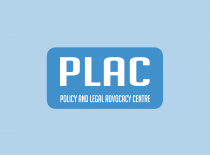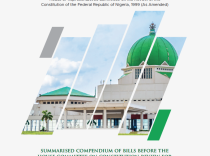The House of Representatives at its plenary session of Tuesday, 19 December 2017 mandated its Committee on Telecommunications to investigate the activities of the Nigerian Communications Commission (NCC) and Telecommunications Service with a view of finding out why the accruable revenue remitted to the Federal Government was decreasing. In addition to this mandate, the Committee is also expected to investigate the rise of cyber security threats, which is thought to have exacerbated due to the increase in telephone number masking by fraudsters and Telecommunication Service Providers.
Presenting the motion on the floor of the House Hon. Saheed Akinade –Fijabi (APC:Oyo) explained that telephone number masking was generally carried out via a Voice-Over-IP Technology software that makes it possible for fraudsters, criminals and terrorists to communicate with anyone on their phones irrespective of their geographical location. Elucidating further, he stated that this meant that shady characters could easily hide their identities or pretend to be someone else with the software since many consumer service companies and government agencies often use phone calls to confirm or verify identities of persons. Thus, the telephone masking issue was one of paramount importance as it posed a major threat to the effective use of cyber space.
In addition, Hon. Fijabi lamented over the porous nature of Nigeria’s cyber security system stating that numerous scams had been carried out against consumers and financial institutions through an enabling environment for hackers to abuse the password recovery features of online services and victim’s accounts. He stated that through Voice-Over-IP Technology, international calls made from anywhere in the world can be routed and displayed as local calls carrying the Global System of Mobile Communications (GSM) numbers of telecommunications service providers in Nigeria.
Hon. Fijabi also called for an investigation of why the termination fee for international inbound calls routed as local calls were tariffed at a local rate by telecommunications service providers in Nigeria despite the implications in terms of the accruable revenue that would eventually be remitted to the federal government.
In conclusion, the lawmaker urged the House to carry out its role of oversight on the matter as the absence of an effective monitoring mechanism to checkmate concerns in the telecommunications sector could pose a threat to national security and hinder remittance of accruable revenues from the telecommunications industry. The Committee is to report back its findings in six (6) weeks for further legislative action.




